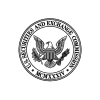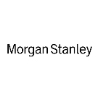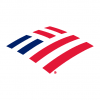
New order
The approval by the US Securities and Exchange Commission (SEC) of a new listing procedure for companies will not lead to an increase in the number of IPOs.
Earlier this week, the SEC approved a change to the rules of the New York Stock Exchange to allow direct trading, which allows companies to sell shares in one major transaction directly on the exchange without underwriters.
This innovation is intended to make the "rules of the game" more democratic, and would be an alternative to traditional debuts.
NYSE president Stacey Cunningham said: "This is a game-changer in our capital market, leveling the playing field for conventional investors and giving companies another avenue to go public when they need that type of innovation".
But in reality, a direct listing is not such a novelty. Palantir Technologies and Asana went public this year through direct listings, like Slack and Spotify. But these deals did not allow them to sell new shares. Instead, shareholders sold only what they already had.
A new, direct listing approved by the SEC, on the other hand, allows companies to sell new shares and raise fresh capital.
Major US banks such as Bank of America and Goldman Sachs immediately reacted to the news.
According to Dealogic, there have been 242 SPAC IPOs worth $80.5 billion as of December 18. That's more than half of all IPOs this year. And more public SPACs, or "blank cheque" companies as they are also known, are expected to go public in 2021. However, they tend to use the traditional IPO model.
Investment banks are in no danger of losing business because they are actively involved in a direct listing, providing many of the same services as a traditional IPO: that includes investor outreach and engagement, equity history and investor company advice.
Also, experts have noted that the number of IPOs will hardly increase.
In a direct listing, the investment bank also helps establish a reference valuation for the market maker. The same Goldman Sachs led Spotify's direct listing, which included Morgan Stanley and Allen Co.
But there are risks with a direct listing. The biggest advantage of a traditional IPO is that it allows companies to control where their shares go.



















































